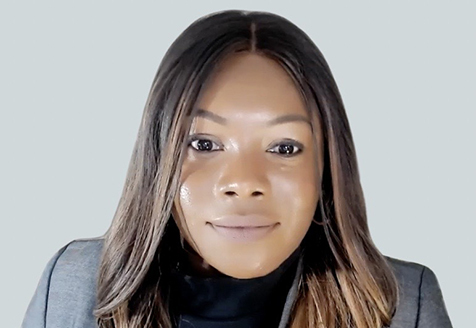Stanford Medcast: Expert Voices in Medicine and Healthcare
Episodes
Monday Sep 05, 2022
Monday Sep 05, 2022
In this episode, we discuss the far-reaching health impact of gun violence in schools with Dr. Maya Rossin-Slater. Dr. Rossin-Slater is currently an Associate Professor, Department of Health Policy at Stanford University and her research focuses on issues in maternal and child well-being, family structure and behavior, health disparities, and public policies affecting disadvantaged populations in the United States and other developed countries. Gun violence in schools has become a public health issue because the health impacts are far-reaching. The trauma experienced can last for many years, even in cases where there are no deaths or injuries.
Read Transcript
CME Eligibility End Date: 9/5/2025

Monday Aug 08, 2022
Stanford Medcast: Season 3 teaser!
Monday Aug 08, 2022
Monday Aug 08, 2022
New Season loading! Stanford Medcast is gearing up for Season 3! Get ready for Tuesday, September 5, when we are back with hot topics in medicine, healthcare, and education. The new season will be packed with great interviews featuring thought leaders, clinicians, and experts, making us your bi-monthly podcast to get up-to-date, evidence-based approaches to care.
Join us on Tuesday, September 6, for the Season Opener. If you have any suggestions or questions, please contact us at stanfordmedcast@stanford.edu.
Read Transcript

Monday Jun 20, 2022
Episode 43: Hot Topics Mini-Series: Stem Cell Therapy in Multiple Sclerosis
Monday Jun 20, 2022
Monday Jun 20, 2022
Today's episode includes a discussion with Dr. Jeffrey Dunn who serves as the Lily Sarafan Director of Neuroimmunology, Clinical Professor and Chief of Neuroimmunology within the Department of Neurology & Neurological Sciences at Stanford University. The discussion includes an overview of the different types of stem cells, as it relates to Multiple Sclerosis (MS), some of the ways researchers are considering using stem cell therapy to treat MS, and the limitations of disease modifying treatments that stem cell therapy could help address. Advice will also be provided to clinicians whose patients are asking about stem cell therapy and when it will be available to them. This session focuses on the knowledge gaps around the risks and benefits of stem cell therapy and the ongoing research taking place to bring this therapeutic option from bench to bedside.
Read Transcript
CME Eligibility End Date: 6/20/25

Monday Jun 06, 2022
Episode 42: Hot Topics Mini-Series - Gut Microbiome in Multiple Sclerosis
Monday Jun 06, 2022
Monday Jun 06, 2022
A recent study showed that interaction between the immune system and the gut microbiota plays a crucial role in the development of MS. This episode includes a discussion with Dr. Emmanuelle Waubant regarding her ongoing research and new treatments for multiple sclerosis (MS). Dr. Waubant is the Director of UCSF Regional Pediatric Multiple Sclerosis Center and serves on the clinical care committee of the National Multiple Sclerosis Society's local chapter and the translational research review committee for the society's national office.
Read Transcript
CME Eligibility End Date: 6/6/25
Monday May 16, 2022
Monday May 16, 2022
This episode is part of the Stanford Medicine Prostate Cancer CME Series: Treatment Across the Prostate Cancer Continuum. In this episode, Drs. Benjamin Chung, Ali Khaki, Sumit Shaw and Yushen Qian will discuss the complex treatment options for prostate cancer, as well as advances in diagnostic decision making. This episode will also include cased based discussions regarding diagnosis and clinical decision making.
Read Transcript
CME Eligibility End Date: 5/16/25

Monday May 02, 2022
Monday May 02, 2022
This Hot Topics Mini-Series episode includes a discussion with Dr. Lawrence Steinman, professor of Neurology and Neurological Sciences, Pediatrics, and Genetics at Stanford Medical School. Multiple sclerosis (MS) is an autoimmune disease that affects the central nervous system. In people with MS, the body’s immune system attacks the insulating layer that surrounds nerve cells, often killing the cells. In this episode, Dr. Steinman unpacks the connection between the Epstein-Barr virus and MS and the implications for the development of new vaccines and anti-virals that have the potential to eradicate this disease.
Read Transcript
CME Eligibility End Date: 5/2/25
Monday Apr 18, 2022
Episode 39: Hot Topics Mini-Series - Nutrition Myths
Monday Apr 18, 2022
Monday Apr 18, 2022
Today’s episode is focused on Nutrition Science. We are speaking with Dr. Christopher D. Gardner, who is the Rehnborg Farquhar Professor of Medicine at Stanford University, and the Director of Nutrition Studies at the Stanford Prevention Research Center. Dr. Gardner has recently shifted much of his energies to a second and more challenging question: What forces and factors can successfully motivate people to improve their food and beverage choice behaviors? To address this question, he has collaborated with scholars and researchers from across all seven of Stanford’s undergraduate and graduate schools. He is also currently collaborating with chefs and dining operators from Stanford’s Residential and Dining Enterprises, and the Culinary Institute of America, with an emphasis on elevating the unapologetic deliciousness of food. Today we will discuss common Nutrition Myths and talk about ways to encourage patients to eat healthier foods, to support their nutritional needs.
Read Transcript
CME Eligibility End Date: 4/18/25
Monday Apr 04, 2022
Episode 38: Hot Topics Mini-Series - Role of Surgery in Humanitarian Aid
Monday Apr 04, 2022
Monday Apr 04, 2022
In this episode, Dr. Sherry Wren focuses on humanitarian aid in low to middle resource countries. Dr. Wren is very involved in humanitarian surgery and global surgery. She works and manages educational partnerships in Sub-Saharan Africa and is a faculty fellow of the Stanford Center for Innovation and Global Health. Dr. Wren became interested in humanitarian work in college and worked as a surgeon with Doctors Without Borders in Africa. Not only are infectious diseases of concern in low income countries, but so are non-communicable diseases. Death from non-communicable diseases have overtaken deaths from infectious diseases - 11% of the global burden of disease can be treated with surgery. Dr. Wren shares her experiences, lessons learned and projects impacting humanitarian care around the world.
Read Transcript
CME Eligibility End Date: 4/4/25
Monday Mar 14, 2022
Episode 37: Hot Topics Mini-Series - Women in Medicine
Monday Mar 14, 2022
Monday Mar 14, 2022
In celebration of Women’s History Month, we continue to share stories of women in medicine. In this episode, we hear from Leah Backhus, MD, MPH, FACS who works in the Department of Cardiothoracic Surgery at Stanford and serves as the Chief of Thoracic Surgery at the VA Palo Alto and Co-Director of the Thoracic Surgery Clinical Research Program. Additionally, Dr. Backhus has grant funding through the Veterans Affairs Administration and NIH. This episode will include Dr. Backhus’ journey into medicine and how she became only 1 of 10 black women who are full professors in the US. The discussion will include unconscious bias, diversity, minorities in medicine and the importance of creating a circle of advocates and mentors.
Read Transcript
CME Eligibility End Date: 3/14/25
Monday Feb 28, 2022
Episode 36: Hot Topics Mini-Series - Women in Medicine
Monday Feb 28, 2022
Monday Feb 28, 2022
Our guest speaker for this episode about Women in Medicine is Odette Harris, MD, MPH, Professor of Neurosurgery, Stanford University and the Director of the Brain Injury Program for the Stanford University School of Medicine. She is also the Deputy Chief of Staff, Rehabilitation at the VA Palo Alto Health Care System. In this episode, Dr. Harris shares her story about how she emigrated from Jamaica with hopes and dreams and her mentors who fostered and supported those dreams, and who influenced her to become the person she is today. She talks about being the second black tenured neurosurgery professor at Stanford and the opportunities this position has afforded her. She speaks about the importance of balance, of doing things that nurture you and also surrounding yourself with those who are important to you, such as family and friends. Join us for an inspirational story in this episode!
Read Transcript
CME Eligibility End Date: 2/28/25

MEET YOUR HOST
Ruth Adewuya, MD, CHCP is the Managing Director of the Stanford Continuing Medical Education, where she leads the strategic planning and delivery of professional development courses, workshops, and initiatives. She works with Stanford faculty, students, staff, and external collaborators to build compelling educational programs that reach learners across the world. Dr. Adewuya develops online and blended learning strategies, leading teams responsible for continuing education accreditation, instructional design, program implementation, and evaluation. She has extensive experience in the development, deployment, and facilitation of clinical medical education for healthcare providers as well as pharmaceutical and medical device industry groups.
Contact us on Twitter @stanfordmedcast









